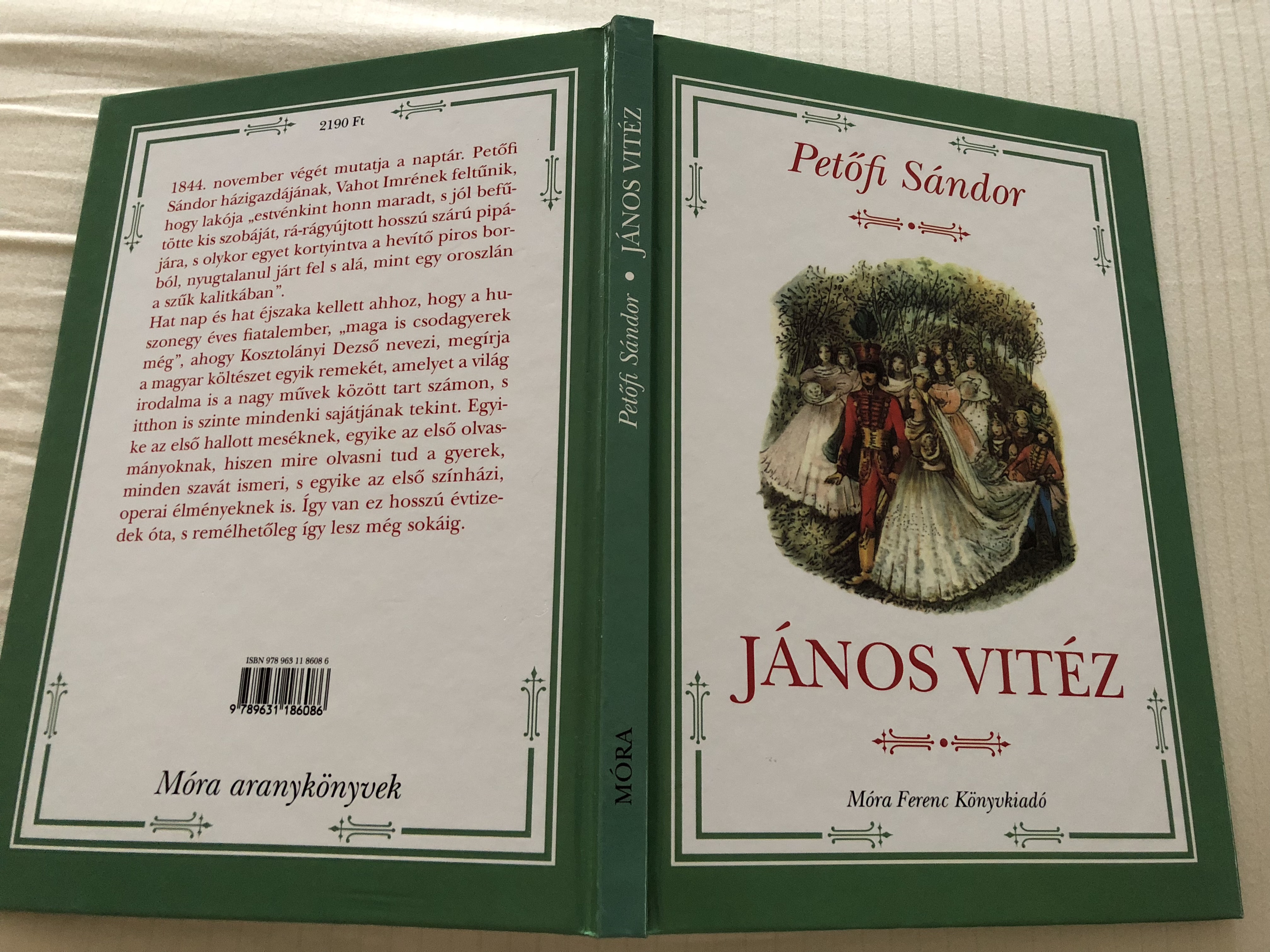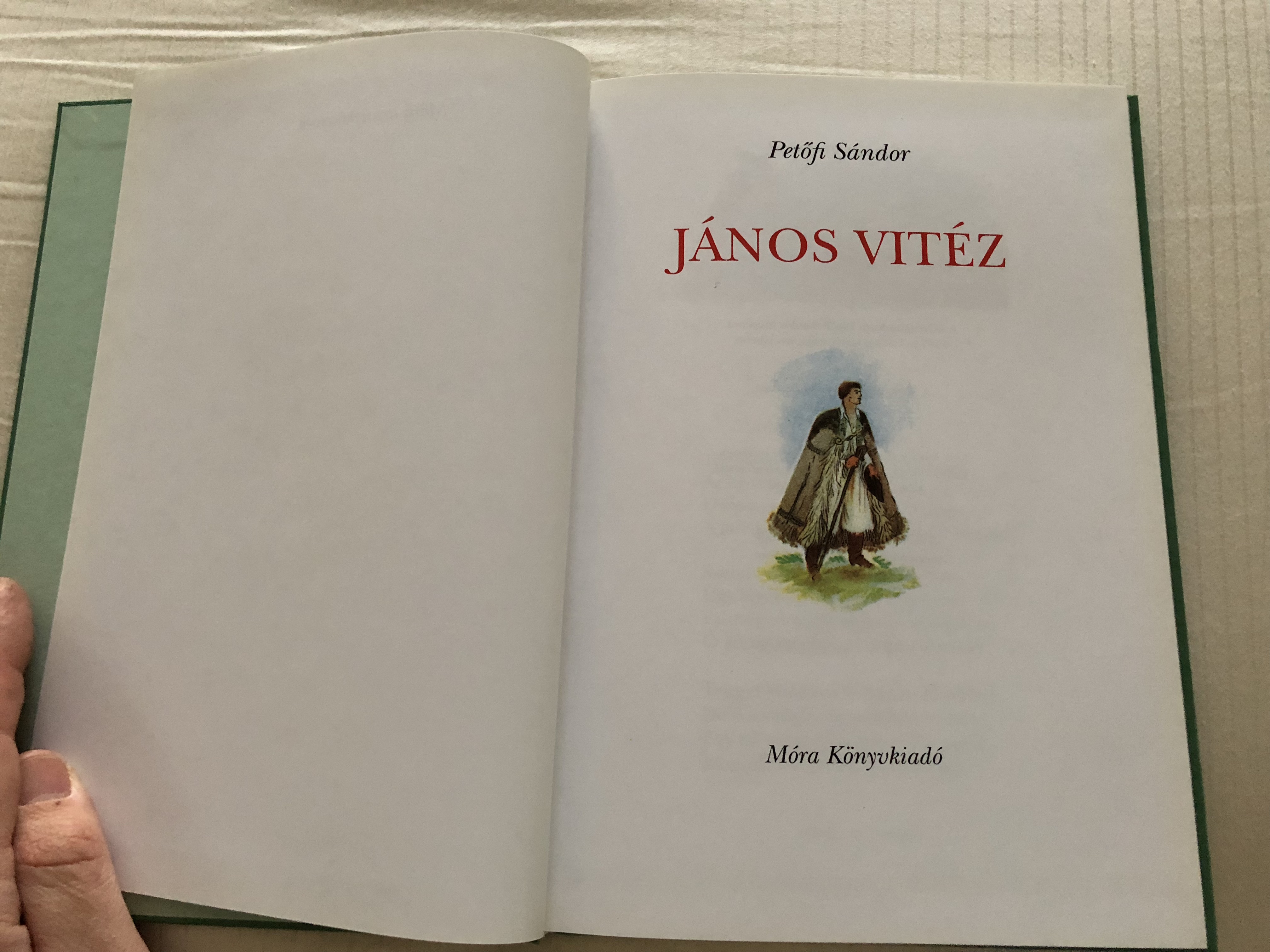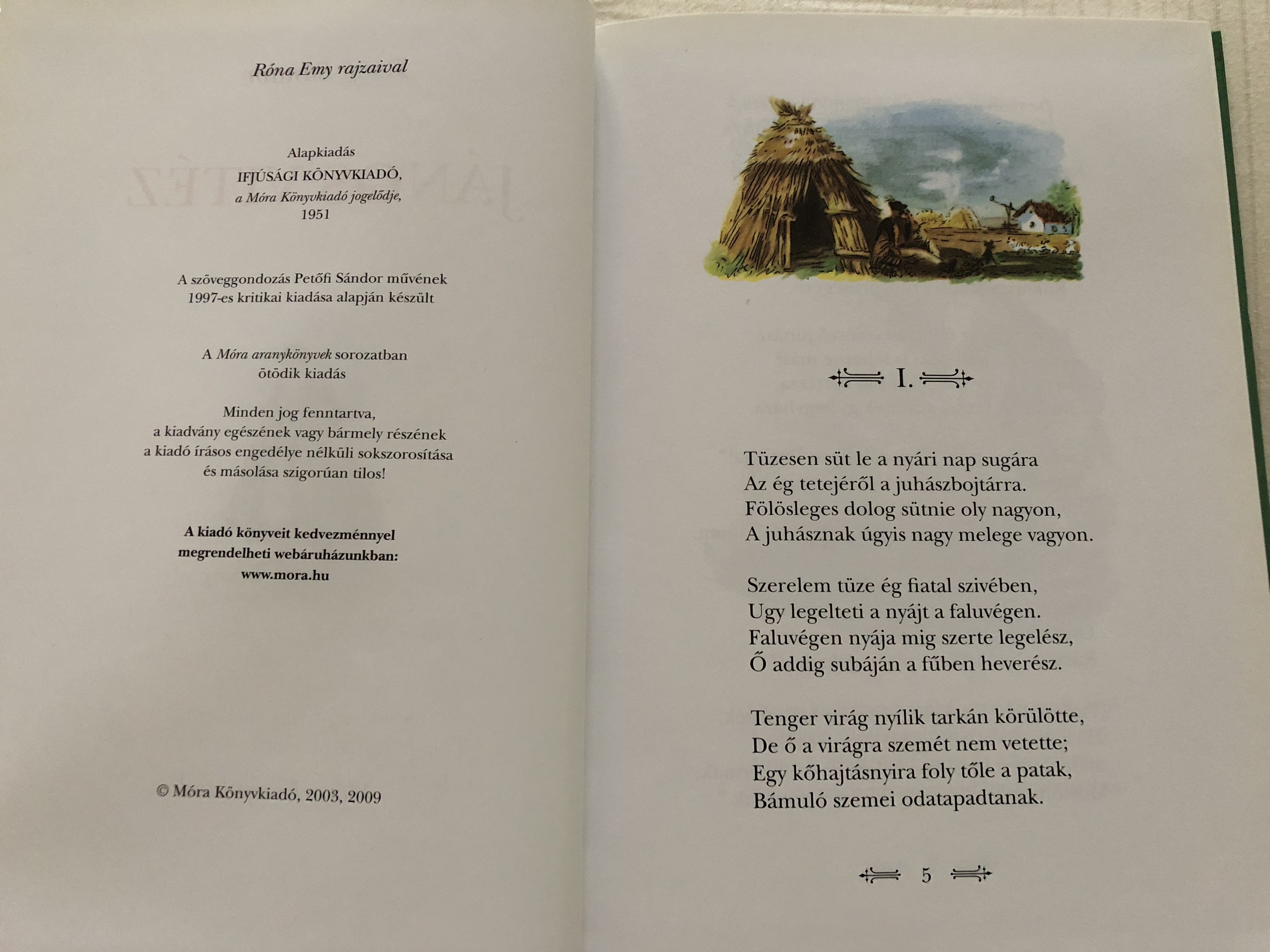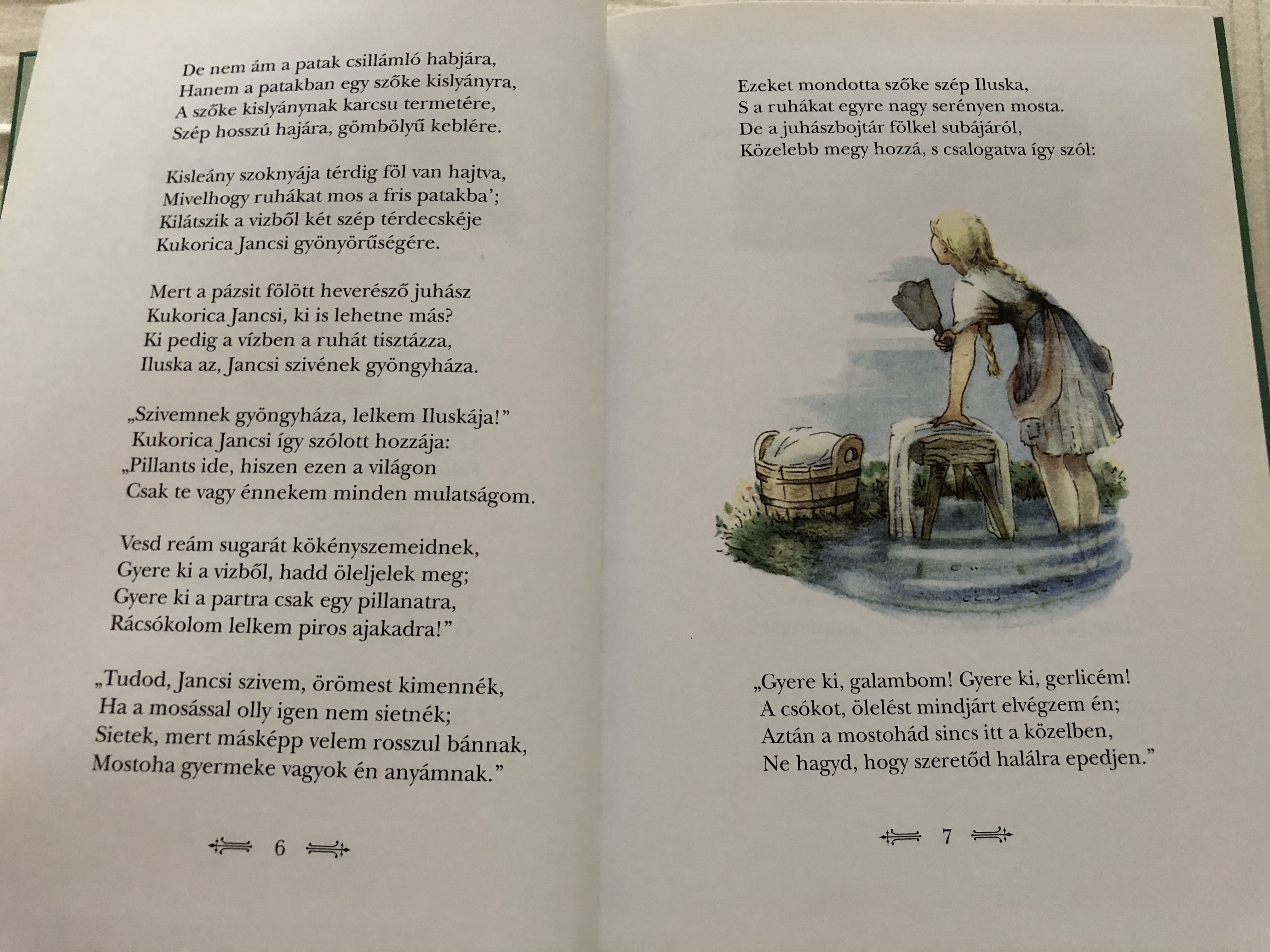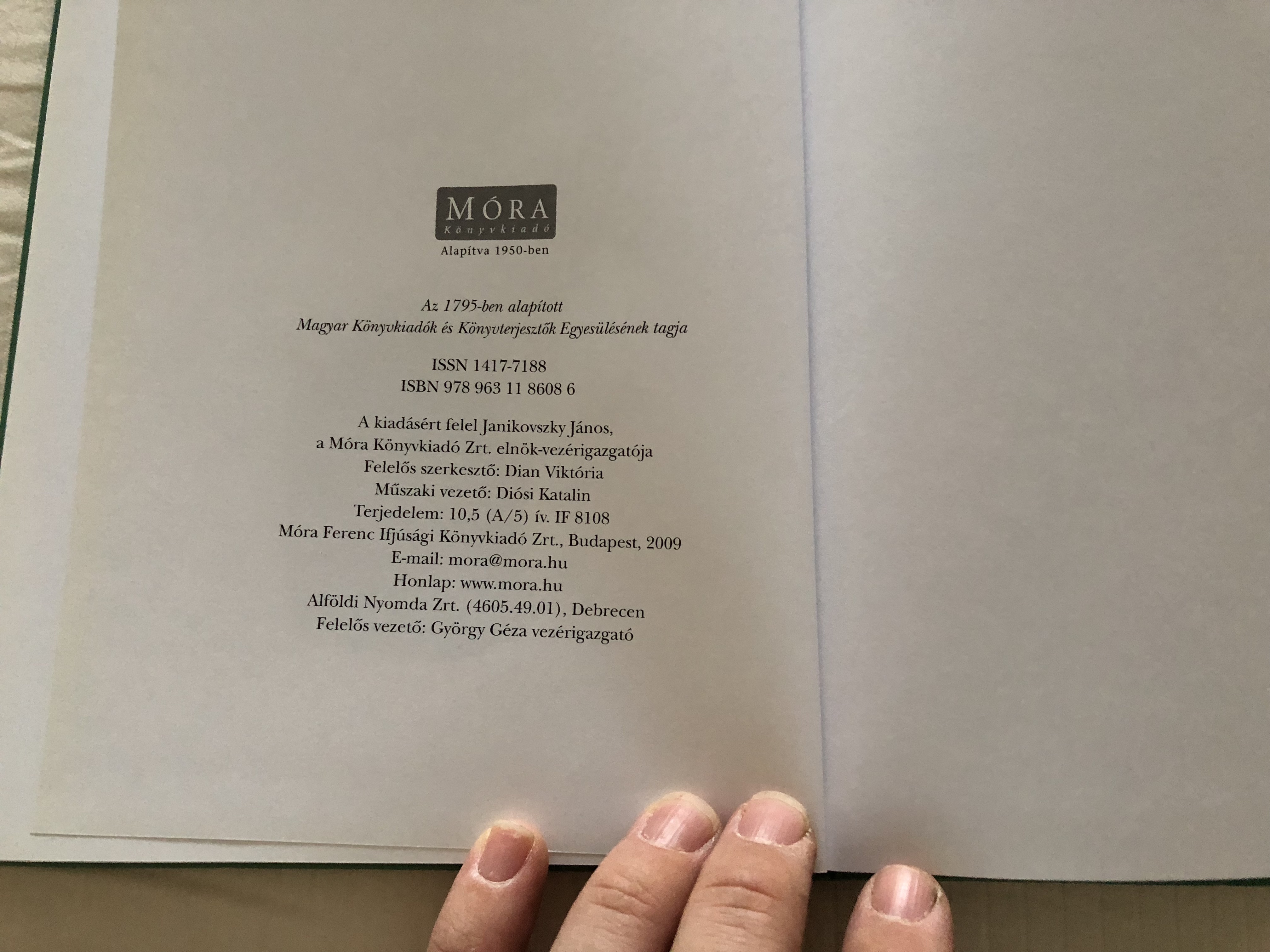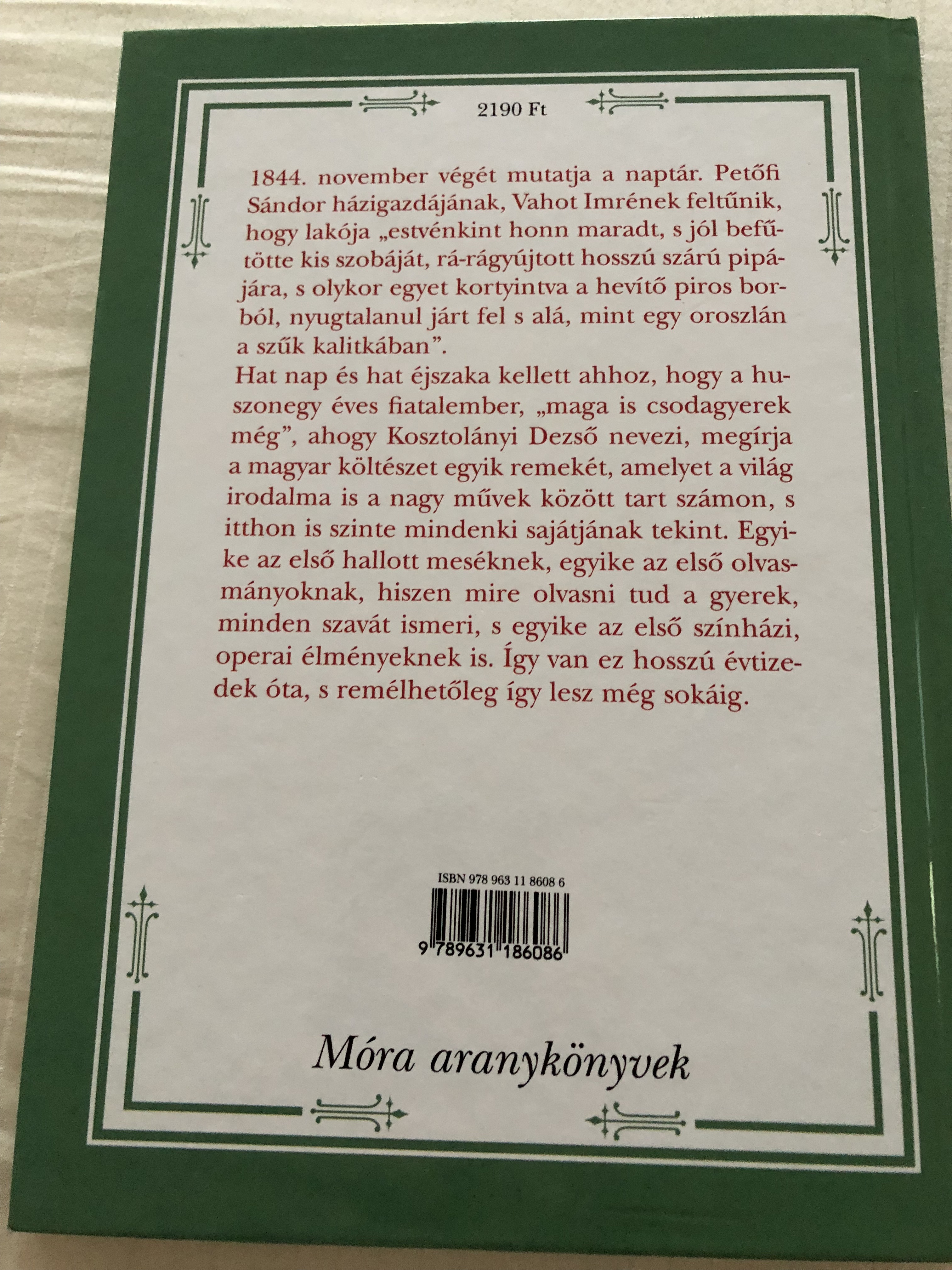Description
Petőfi Sándor - János vitéz / John the Valiant
Hungarian Language Book for Children
A János vitéz Petőfi Sándor 1844-ben írt verses meséje, irodalmi kifejezéssel élve elbeszélő költeménye.
Az elbeszélő költemény átmeneti műfaj. Rímes-ritmikus szöveg, amely a versekre jellemző, ugyanakkor történetet mond el, amely általában távol áll az inkább élményt, érzést kifejező költeményektől. Egyszerre lírai és epikus jellegű. A János vitéznek mind a története, mind a költői kifejezésmódja kiemelkedő értéket képvisel irodalmunkban. Meseszámok: 3,1,7,12,100.
Verselése: ütemhangsúlyos,négyütemű felező tizenkettes. Rímei páros rímek (a,a,b,b).
A szerkezetében öt fordulópont figyelhető meg: Jancsi és Iluska elválik egymástól, Jancsi beáll katonának, majd a János vitéz nevet kapja. Szomorúan szembesül vele, hogy Iluska meghalt, és végül eljut Tündérországba.
A művet Kosztolányi Dezső a "magyar Odüsszeiá"-nak nevezte. Az író eszményképet teremt a nép számára, hiszen Kukorica Jancsi, az árva juhász, Tündérország királyává válik.
A János vitéz a szegények, az elnyomottak győzedelmes felülkerekedését hirdeti a szenvedéseken, a megpróbáltatásokon. A cselekményben a valószerű falusi életkép keveredik a népmesei motívumokkal (az árva fiú világgá megy, próbatételeken megy keresztül, kitalált lényekkel találkozik (boszorkányok, griffmadár, óriások) stb.). A falu és a pusztaság Petőfi által megélt világ, azt elhagyva kezdődik a mese. A főhősre útján nem csak szellemi és fizikai kihívások várnak, de jellempróbáló erkölcsi csapdákon is túl kell jutnia. A falu két árvája végül az örökös boldogság hazájában, Tündérországban találkozik, ahol örökké uralkodnak. A mesei részben mindenki eszményítve jelenik meg. A költő alapvetően mindenkit jónak lát, a bűnösök elnyerik méltó büntetésüket, az erényesek pedig a megérdemelt jutalmat. Petőfi a nép - az egyszerű emberek - számára írta a verset, ezért lett a népmese a vers mintája.
"János Vitéz" ("John the Valiant") is an epic poem written in Hungarian by Sándor Petőfi and a musical by Pongrác Kacsóh adapted from the poem. It was written in 1845, and is notable for its length, 370 quatrains divided into 27 chapters, and for its wordplay. It is a story of the young shepherd who is forced to leave his home and undergoes adventures as he defeats the villains such as Turks and witches while searching for his true love.
The poem has gained immense popularity in Hungary, and is today considered a classic of Hungarian literature.[1][2] It was adapted into a popular musical in 1904 and into the animated feature film Johnny Corncob, the first of its kind in Hungary, in 1973.
Kukorica Jancsi ("Johnny Corn") is found abandoned in a corn field as an infant; he is taken in by a peasant landowner, and by his adolescent years, is a shepherd for his master. He is in love with an orphan girl, Iluska, who is being raised by her envious stepmother. Jancsi and Iluska hope to be married, but once, while they are spending time together, many of his sheep wander away, and he is chased from the village by his master.
Dejected, he joins a company of hussar cavalrymen en route to France to fight the Turkish invasion there. The hussars journey from Hungary to France (crossing the many, heavily fictionized countries in between, such as Venice, India and Mongolia, where they arrive just in time for the battle. Jancsi saves the French princess from capture, and the king in gratitude offers him her hand in marriage and the kingdom to rule. Jancsi turns the offers down, telling the king about his love for Iluska; the king then gives him a reward of gold, and names him János Vitéz ("Sir John").
János travels back to Hungary by boat, only to learn that Iluska hss been worked to death by her cruel stepmother. In memory of her, he plucks the single rose growing from her grave and keeps it. He then sets off on a series of increasingly more dangerous adventures, hoping to end his life in some glorious feat. He reaches the Land of the Giants, where he kills the king in his castle and has all the other giants pledge fealty to him. Later, he arrives in the Country of Darkness that is ruled by evil witches. He calls on his mighty giant vassals to help him wipe them out. As each witch dies, the forest becomes a little brighter, and János notices that one of them is Iluska's stepmother. She is the last to be destroyed, leaving the land in full daylight.
After several years of further wandering, which includes him slaying a dragon, János finally emerges at the end of the world, the coast of the Óperenciás sea (a traditional uncrossable ocean in Hungarian folklore). He again calls a giant, this time to wade across with him on his shoulder. They arrive at an island after two weeks, which turns out to be the Land of the Fairies. János, unable to feel happy without Iluska, wants to kill himself in a small lake, and tosses the rose in first. At this moment, it turns out that the lake contains the Water of Life: the rose changes into the form of Iluska. Reunited, the two lovers get married at once, and the fairies proclaim them king and queen. They live happily ever after.
Petőfi Sándor (született Petrovics, Kiskőrös, 1823. január 1. – Fehéregyháza, 1849. július 31.) magyar költő, forradalmár, nemzeti hős, a magyar költészet egyik legismertebb és legkiemelkedőbb alakja. Rövid élete alatt közel ezer verset írt magyarul, ebből körülbelül nyolcszázötven maradt az utókorra, és az ismertebbeket sok más nyelvre lefordították.
The native form of this personal name is Petőfi Sándor. This article uses Western name order when mentioning individuals.
Sándor Petőfi (Hungarian: [ˈʃaːndor ˈpɛtøːfi]; né Petrovics; Slovak: Alexander Petrovič; Serbian: Александар Петровић; 1 January 1823 – most likely 31 July 1849) was a Hungarian poet and liberal revolutionary. He is considered Hungary's national poet, and was one of the key figures of the Hungarian Revolution of 1848. He is the author of the Nemzeti dal (National Song), which is said to have inspired the revolution in the Kingdom of Hungary that grew into a war for independence from the Austrian Empire. It is most likely that he died in the Battle of Segesvár, one of the last battles of the war.
